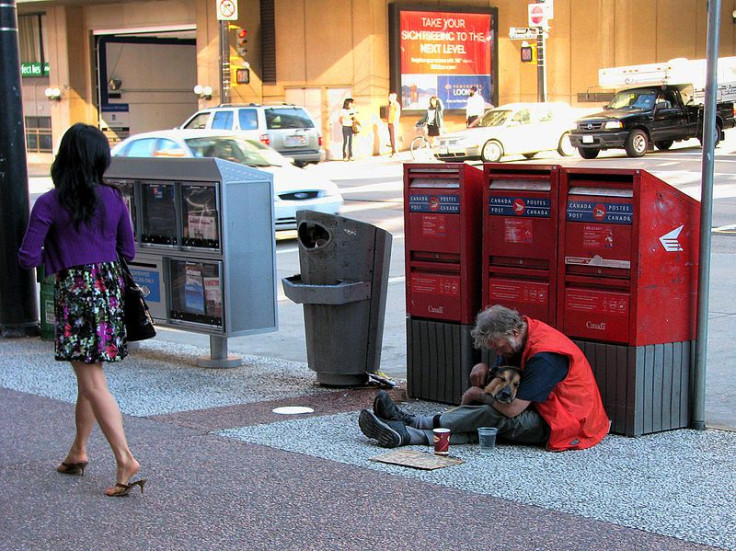Crack Addict, Gary Pipe, Kicks Habit To Save Dog's Life: 'I Knew If I Kept Smoking I Was Going To Lose Him'

Kolby, a German Shepherd and Golden Retriever mix, is truly deserving of the title, “man’s best friend.” The dog helped his owner, Gary Pipe, kick his crack addiction 11 years ago when he was living in a single resident occupancy at the Avalon Hotel in Vancouver, Canada. For Pipe, it was love at first walk when he realized that he became addicted to something much more powerful than cocaine — Kolby's company.
In 2002, Pipe resided at the Avalon Hotel, a place where many residents struggle with mental illness, addictions, and low income. Jenny Konkin, Kolby’s owner at the time, had her parents bring the dog to the hotel to visit residents who would happily volunteer to take Kolby on walks, Metro News Canada reports.
Pipe was one of the gleeful residents who found pure joy in walking Kolby whenever the dog visited his residency. The former crack addict got so attached to him and told Konkin’s mother, “Well, you’ve either got to take him back or give him to me, because I’m getting too attached to him." Luckily for Pipe, Kolby was soon his.
The Vancouver man’s attachment to the canine has provided him with comfort and support after a lifelong struggle with drug abuse. Pipe kicked his heroin and pain killer addictions that ruined his life for more than 25 years through a methadone treatment program. According to the Centers for Disease Control and Prevention, the treatment program aims to help injection drug users reduce or stop injecting and return to productive lives. Pipe was still on the crack pipe, but realized that it was making his “best friend” sick.
“Kolby would either throw up or he’d want out of the room, so I knew if I kept smoking I was going to lose him,” Pipe told Metro News Canada. “So I just quit smoking it and kept everybody out that was smoking it.”
Since Kolby has helped kicked Pipe’s addiction to the curb, the recovering crack addict’s money is now being used to feed his dog’s cravings. The 13-year-old canine eats steak for dinner every night. “He eats steak and I eat chunky soup,” Pipe said with a chuckle. “I can’t afford what he eats.”
“He’s pretty much my life,” Pipe added. “If I didn’t have him I’d just be sitting around in my room, watching TV all the time, so now I get out. I get some fresh air. It makes a big difference.”
Kolby has provided a sense of normalcy and reassurance to his owner, being non-judgmental and accepting, helping the recovering crack addict recover his sense of self-esteem, safety, and trust. "In an environment where people have proven to not be trustworthy — or, in the addict’s case if they cannot trust themselves — trained therapy dogs can potentially bridge the gap and make a difference in one’s recovery,” said Dr. Santi Meunier, acclaimed author, speaker, and consultant.
The use of animal-assisted therapy dates back to the 1940s when an army corporal brought his Yorkshire Terrier to a hospital to cheer wounded soldiers. The presence of the dog generated such a positive response that the dog continued to comfort others for 12 more years, according to the American Humane Association. Research has shown that animals have a calming effect on individuals, reducing blood pressure and anxiety.
To learn how you or someone you know can start an animal-assisted therapy program, visit Pet Partners.
Published by Medicaldaily.com



























